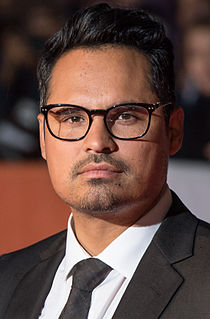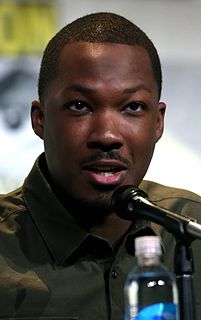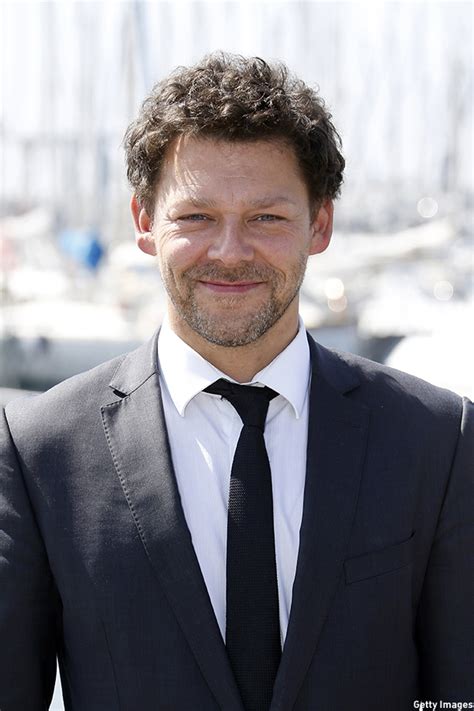A Quote by Tommy Dewey
This is a corny actor thing to say, but the first step is that you can't judge the character that you're playing. If it's built in three-dimensional fashion, you'll just play a character who's going out and seeking the best version of their life that they can find. That gives the character an accessibility that everyone can identify with.
Related Quotes
I'm not a writer; I'm an actor. My job is to take whatever character I'm given and - especially because I have the responsibility of being a black actress, and I know young black girls are looking up, and everyone's looking to what's on television - to just try to give whatever character I'm playing as three-dimensional a portrayal as I can.
In the beginning, I was always playing some kind of gangbanger and the token Mexican dude who didn't have a lot of lines but was in the entire movie. At the same time, everyone gets typecast, and I decided that if I was going to play a stereotypical role, I was going to play it like a three-dimensional character.
As an actor, you don't want to know the beginning and end to your character's arc. It makes it more fun. You're not playing the end. You're playing it realistically. You don't know where this character is going to go and what's going to happen to him, which just makes it more interesting for the viewers to watch. They're going on the journey with you, as the actor and the character.
I never like to judge the character. I just have to leave my feelings of pity, or fear, about a character - whatever I feel towards the character, I try to leave to one side. It's good to have them, but it doesn't help me. I can't act those things. I just to play the character as truthfully as I can.
Whatever character you play, whatever film it is, whatever story it is, for me, in my training it's always something that gives you a layered character, it's understanding the secret of that character, and so whatever comes up as "Oh, I thought that person was that," you are always carrying that within you. So actually what you're playing all the way through is both and it's just what comes out in the scene or the circumstance.
The only thing that I have to be assured of is that the character must be negative for a sensible reason. She should not be behind everyone's life just for fun, which is the case in many serials. Moreover, it will also test my potential as an actor, so playing a negative character would be an interesting challenge for me.
I think you should identify with your character, but plenty of people like themselves and hate themselves. You just have to find out what's truthful for the person you're playing. When people talk about that, I think what they're saying is that as an actor, as Peter, you don't want to make a judgment that comes from your worldview about the character. Your judgments should be coming from the place of the character, and within that space, sure, you could love or hate yourself or whatever you think is most appropriate.
When you are writing, you have to love all your characters. If you're writing something from a minor character's point of view, you really need to stop and say the purpose of this character isn't to be somebody's sidekick or to come in and put the horse in the stable. The purpose of this character is you're getting a little window into that character's life and that character's day. You have to write them as if they're not a minor character, because they do have their own things going on.




































